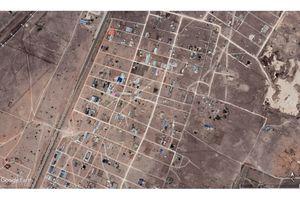MPs seek to curb State-sanctioned enforced disappearances

A section of Parliament Buildings, Nairobi.
What you need to know:
- The National Commission on Human Rights (KNCHR) in its report covering the period between 2013-2022 indicates that there were 1,040 cases of extra-judicial killings and enforced disappearances attributed to security agencies.
- According to their report, the majority of the victims were young adults aged between 15-35 years.
- The Independent Policing Oversight Authority (IPOA) report also told the petitions committee that between October 2018 and February 2020, there were 210 cases of deaths arising out of police action in the form of death while in police custody or enforced disappearance cases.
A parliamentary committee has recommended the enactment of a specific law to criminalise and prescribe penalties for the crime of enforced disappearance.
The National Assembly Committee on Public Petitions said there is a need for a stand-alone law on enforced disappearances on the back of alarming cases, which perpetrators, mostly security agents, are never held to account.
This proposal is contained in the committee report tabled in the House on the consideration of a petition by the executive director of Kituo cha Sheria, Annette Mbogo.
The committee noted that while there are various laws such as the Penal Code Cap 63, which deal with such cases, it does not recognise the crime of enforced disappearance, but only prohibits kidnapping and abduction.
“There is a need to review present laws to recommend amendments to existing provisions in the legislation to mainstream enforced disappearance in the legal framework,” reads the report.
“That a statute stand-alone law may be enacted or certain laws can be reviewed to criminalise enforced disappearance,” further reads the report.
The committee said the laws that need to be reviewed will include Penal Code Cap 63, the Criminal Procedure Code Cap 75, the Persons Deprived of Liberty Act, 2014, the Prevention from Torture Act 2017, the National Coroners Service Act 2017, and other relevant related laws.
Presently, offenders are prosecuted under a range of related offences such as kidnapping or abductions, false imprisonment, torture, and cruel inhuman treatment.
The committee however noted that these offences do not adequately reflect the gravity and specific nature of enforced disappearance, which is a separate and complex crime
The committee noted that while Article 29 of the constitution puts the responsibility for the protection of life on the government, there is no legislation to ensure the government and its agencies are accountable to its people whenever the suspects are the same state agencies.
According to the report, many of the documented cases indicate that security officers are the main perpetrators of the enforced disappearance and they are the same ones conducting investigations.
In its report, the committee noted that there have been increased cases of enforced disappearances that have affected the lives of many people as well as their relatives.
On Tuesday, the High Court ordered Acting Police Inspector General Gilbert Masengeli to appear in person for questioning over the disappearance of three people in Kitengela two weeks ago.
The court directed the Inspector General of Police, Director of Public Prosecutions (DPP), Attorney General, Director of Criminal Investigations (DCI), and National Intelligence Service to disclose the whereabouts of Bob Micheni, Jamil Longton and Aslam Longton to the Law Society of Kenya which filed the case.
In March last year, Dr Mbogo presented a petition to parliament calling for the enactment of legislation to criminalise and prescribe penalties for the crime of enforced disappearance.
In her petition, Dr Mbogo pointed out that there was no legal remedy to hold suspects of the crime of enforced disappearance accountable for forcibly disappearing victims whose whereabouts remain unknown.
Dr Mbogo said in her petition that she has worked with victims of extra-judicial killings and disappearances since 2007 and documented a total of 1,201 killings and 272 enforced disappearances with most of the incidences having occurred in the hands of police and other security agencies.
She said in 2021, Kenya reported approximately 43 cases of disappearance of persons who were last seen in police custody or who were abducted by persons believed to be police officers.
In her prayers, she called on the National Assembly to enact laws that would expressly criminalize and prescribe penalties for the crime of enforced disappearance.
The committee noted that despite Kenya being a signatory to the International Convention for the Protection of All Persons from enforced disappearance, it has not taken steps to ratify the convention and recognise the crime of enforced disappearance in its legislation.
“Therefore there is no effective legal remedy available through law to hold suspects accountable for victims of enforced disappearance whose whereabouts remain unknown or denied,” reads the report.
Article 2 (6) of the constitution provides that ‘any treaty or convention ratified by Kenya shall form part of the law of Kenya under this constitution’
About 70 states ratified the International Convention for the Protection of All Persons from Enforced Disappearance. Some of the African countries that ratified the convention and have so far taken steps to recognise the criminalised enforced disappearance in their domestic laws include Morocco, Benin, Malawi, and Gambia.
The convention was adopted by the General Assembly in its resolution 61/177 of 2006 and came into force on December 23, 2010. It was the first universally legally binding human rights instrument concerning enforced disappearance. Kenya signed the convention in February 2007.
There has been concern in the country about the increased cases of enforced disappearance with both regional and international organizations calling for accountability, especially from the police authority.
Lack of accountability and bringing the perpetrators to book has emboldened those carrying out the practice.
Forced disappearance entails deprivation of liberty, refusal to acknowledge the deprivation of liberty, or concealment of fate and the whereabouts.
It is considered a grave crime that violates human rights such as the right to life, liberty, and security of the person.
Last month, the Independent Police Oversight Authority told the National Assembly Constitutional Implementation and Oversight Committee (CIOC) that 19 people were abducted during the recent anti-government protests by the Gen-Z
The authority told MPs that it has already submitted all the 19 files of the cases to the DPP and is awaiting feedback.
The National Commission on Human Rights (KNCHR) in its report covering the period between 2013-2022 indicates that there were 1,040 cases of extra-judicial killings and enforced disappearances attributed to security agencies.
According to their report, the majority of the victims were young adults aged between 15-35 years.
The Independent Policing Oversight Authority (IPOA) report also told the petitions committee that between October 2018 and February 2020, there were 210 cases of deaths arising out of police action in the form of death while in police custody or enforced disappearance cases.




